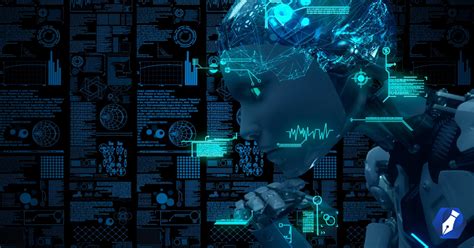Freelance writers are navigating treacherous waters as the integration of AI detectors in education and professional domains is painting an increasingly grim picture. AI detectors, meant to sniff out AI-generated content, are falling egregiously short of their promise, leading to wrongful terminations and severely impacting livelihoods. These detectors, often flawed, are erroneously indicting authentic human writers, resulting in significant professional and personal setbacks. The misfires of these systems suggest a broader reckoning is imminent regarding the use of AI in academia and industry. Freelancers and students alike are bears the brunt of this flawed system.
The current discourse around AI detectors brings to light the intersection between technological advancement and human error. A Reddit post chronicling the plight of a college student accused of using GPT due to AI detectors is a prescient illustration of the issue at hand. Educational institutions and employers are leaning heavily on these technology solutions without fully comprehending their limitations. The false positives these tools produce can devastate, as ‘bigfishrunning’ opines: ‘Imagine getting your life ruined because a neural network deemed it necessary.’ This mirrors sentiments shared by countless others who feel unjustly targeted by these digital watchdogs.
The overreliance on AI detectors has not only academic implications but also legal ramifications. Some commentators, like ‘koolala’, argue that suing for such inaccuracies might be an uphill battle. However, the injustices faced by writers and students are pushing them towards considering legal redress. Another comment by ‘anigbrowl’ goes juxtaposed the idea of quitting versus facing a hefty bill upon quitting university, hinting at the significant monetary and emotional toll associated with these erroneous accusations. This situation challenges the very core of AI’s reliability and presents a daunting question: Should AI have such authoritative reach without accountability?
A particularly revealing comment by ‘sampo’ delves into the startling methods employed by some educators. Notably, it describes a professor who used ChatGPT itself to erroneously validate suspected AI usage in a student’s paper. This underscores a critical flaw—the blind trust placed in technology without transparent auditing mechanisms. Here’s the irony: AI, originally developed to enhance human tasks, is now blurring the lines between human-generated and AI-generated content so effectively that it traps even the most genuine of human expressions in its net. This phenomenon is not isolated to education alone but extends to professional realms as evidenced by the experiences shared by freelance writers.
Ironically, the spectrum of issues steers us towards a paradox where AI-driven solutions are seen as both the problem and solution. One commentator, ‘retrac98,’ elucidates this duality by suggesting that top-tier AI content might already be permeating without us recognizing it. Thus, AI-generated content is infiltrating the very fabric of sectors such as journalism, potentially improving or degrading content quality. Yet, it all boils down to trust—can we trust the detectors, the generated content, or even the system that perpetuates these tools? For instance, renowned publications like Gizmodo have controversially transitioned to AI, resulting in layoffs, further complicating the discourse around human versus machine-generated content.
Clearly, the solutions are not as straightforward as one would hope. A particularly noteworthy comment by ‘cesarb’ proposes an intriguing offline solution: an online text editor that logs every keystroke and blockchains a hash of all logs. This can ostensibly prove the authenticity of one’s writing process. While logistically challenging, it highlights a desperate need for robust systems to protect writers against wrongful accusations. This proposal, albeit clever, also nudges us into uncomfortable territory—where maintaining the sanctity of individual creativity necessitates such draconian measures. This indicates the evolving roles of technology in our creative processes and the urgent need for an evaluative, ethical framework that reassures both creators and consumers.
In summary, the flawed reliance on AI detectors points toward a deeper systemic issue that warrants careful introspection. While AI continues to evolve, its detectors must be critically and continuously evaluated to prevent unjust repercussions on human careers and education. Anchoring such technology with human oversight and scalable, auditable systems might bridge this gap. Until then, both the tech industry and policy makers need to tread cautiously, recognizing the inherent limitations and potentials of these digital tools. Creative works, be it in academia or freelancing, should celebrate authenticity—whether aided by AI or not, holding foremost the essence of human intellect.


Leave a Reply